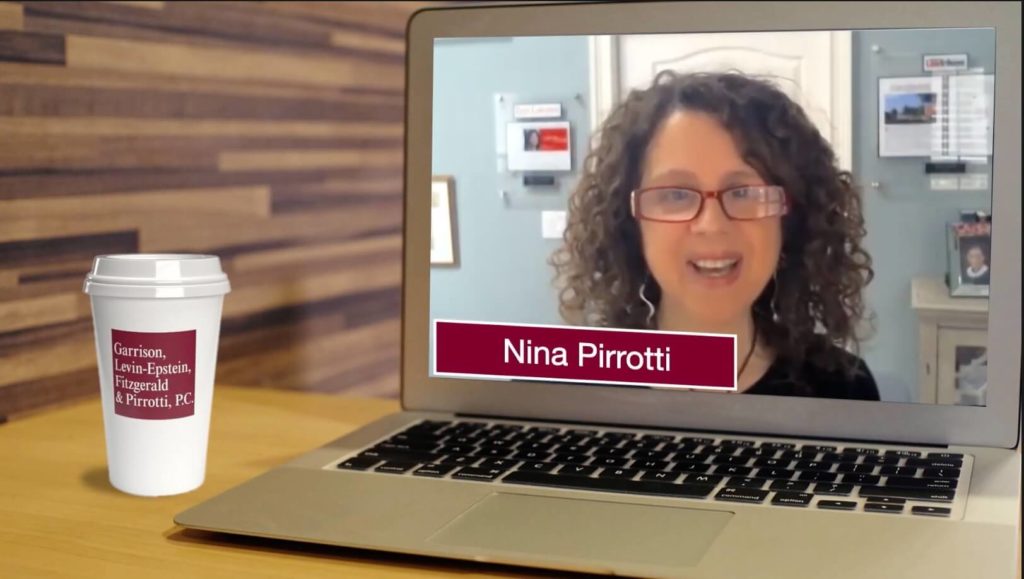Apr 6 2022
Stephen Fitzgerald: Hi, Nina.
Nina Pirrotti: Hey, Steve! What are we going to talk about today?
Fitzgerald: Well, I was thinking about the situations – you and I have experienced it many times – where someone comes to us and they’ve been offered some amount of severance but it’s disappointing. And they explore with us whether or not they might have a claim. They’ve been selected for layoff under certain circumstances that might suggest that perhaps they were the victim of age discrimination, for example. But, after discussing the facts that might support that claim, you come to the conclusion that there really isn’t enough evidence to support a claim of discrimination. Do you face those situations all the time?
Pirrotti: I do, and they’re frustrating. Sometimes something at first blush looks like it’s going to be a viable claim and it turns out that it’s not. Sure, that does happen.
Fitzgerald: Yeah, and then that typically results in a conversation of, ”Well, alright, now that we’ve told you that you don’t have a claim, it still might make sense for you to try to improve upon what you’ve been offered, to try to ask for more,” which in turn results in a conversation about who the employee should ask and how, right?
Pirrotti: Yeah, and I think it’s really important to be thoughtful about who your audience is going to be and how to best approach them. Do you have some suggestions for Connecticut employees on what might be the best path to try to increase that severance offer?
Fitzgerald: Sure. First, we have a conversation with our clients about who is best to ask. And very often, it results in you and I taking the lead and doing our best to improve on the severance that’s been offered.
But sometimes it makes sense after discussing the question of “Who?” with a client that the client take the lead on asking for more severance. In those situations, we do have some recommendations regarding which manager should be the subject of the ask, right? Who on behalf of the company should be hit with the request for more severance?
So, there’s a couple of things that we take into consideration. Very often, clients say, “Well, I’ll just ask the human resources professional who presented me with my severance package.” And our response there is that HR professionals are really there to manage your exit at that point in your story. They’re not particularly there to help you, unfortunately. They’re there to represent the company and to manage the separation.
So, the other thing about HR professionals is that they often have no authority to spend money. So we typically advise our clients to avoid human resources professionals as the person to whom you’re going to ask for more severance. We do advise that you select somebody with whom you have a personal relationship, be it your immediate supervisor, somebody that you used to work with closely, your supervisor’s supervisor. Select somebody who knows you and knows – particularly if you’re a long-time employee – the good service that you’ve provided to the employer.
Second, pick somebody with whom you can get a face-to-face meeting. I always tell people the easiest way to say no is to type the letters ‘N-O’ in response to an email. So, try to pick somebody with whom you can get a face-to-face meeting. Also, if you can, pick somebody whom you have a personal relationship, with whom you can get a face-to-face meeting, and who has an agreeable personality. Somebody who might be willing to use their authority to spend more of the company’s money to improve your severance offer.
Finally, don’t let your selection alienate a potential ally, right? So, if you’ve got an ally who you think might be best to ask and it otherwise meets those other criteria we’ve been talking about, select the ally. Somebody who would advocate for you for more severance.
So, that’s the advice I typically give people when they’re in a position where they are the ones, the client is the one, who is asking for the additional severance when unfortunately they don’t have the leverage of a good claim that you or I could advocate for on their behalf and use that leverage to get more severance.
Pirrotti: I think those are very good tips, and it’s so wise for the employee to consider very thoughtfully their choice of who to approach and to seek out the most receptive audience possible – the audience that’s going to be in the best position to advocate for them. That’s great advice, Steve. Thank you so much.
Fitzgerald: Yeah, and by the way, we typically do continue to advise those clients who are out front, in the background. If you believe you have a situation that could use our advice, please get in touch with us here at Garrison. Thanks, Nina!
Pirrotti: Thanks, Steve!
Posted by Garrison, Levin-Epstein, Fitzgerald & Pirrotti, P.C. in Commentary
Tagged Nina Pirrotti, Severance Agreements, Stephen J. Fitzgerald









